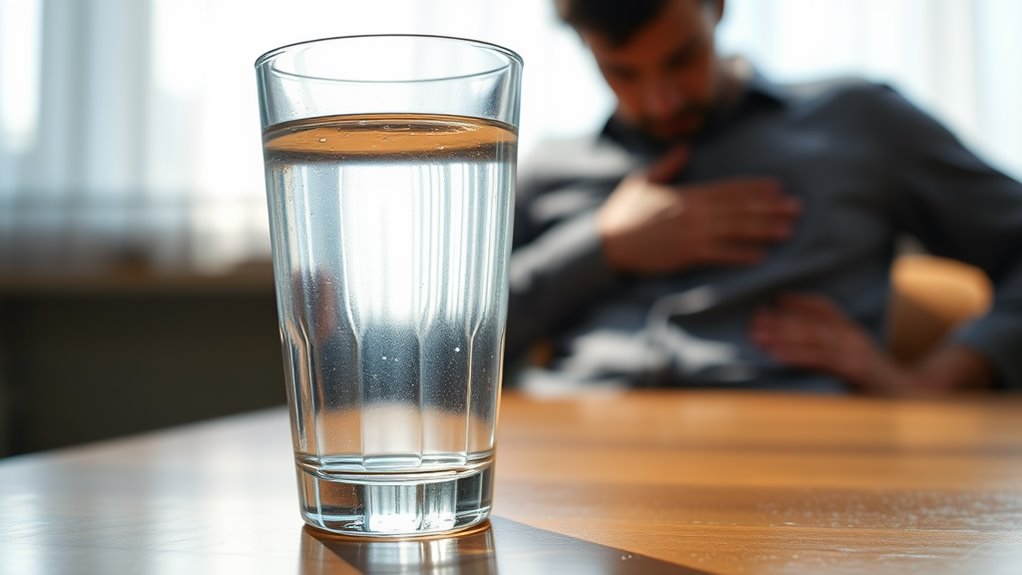
If your stomach hurts after drinking water, it could be due to several factors. Rapid consumption may cause stomach distension, leading to discomfort. Cold water can irritate your stomach lining, while high mineral content might exacerbate irritation. Underlying conditions like IBS or gastritis can worsen symptoms. Additionally, additives in your water might contribute to digestive issues. Exploring these factors can help you identify the reason behind your discomfort and guide you to better hydration practices.
Have you ever wondered why your stomach hurts after drinking water? It's a common issue that can stem from various factors. One significant reason could be the speed at which you consume water. When you drink large volumes quickly, your stomach expands rapidly, triggering nerve receptors that signal discomfort. This excessive gastric distension can lead to bloating and gas, intensifying the sensation of pain. If you're particularly sensitive to these changes, the discomfort may be even more pronounced. To alleviate this, think about spreading your water intake throughout the day instead of gulping it down in one go.
Another factor to reflect on is the temperature of the water. Drinking cold water can cause your stomach muscles to contract, possibly leading to cramping and discomfort. The cold can also irritate the lining of your stomach, causing nausea or pain. Individual sensitivity to cold varies widely; some people may experience significant discomfort, while others may not notice any adverse effects at all. If you find cold water uncomfortable, try switching to room temperature water, which is generally easier on your digestive system. Drinking warm water can be a gentler option for the stomach.
Drinking cold water may cause stomach cramps and discomfort; consider room temperature for easier digestion.
The mineral content of the water you drink can also play an important role. If you're consuming hard water with high calcium or magnesium levels, it may irritate your stomach, particularly if you're sensitive to these minerals. Digestive issues like bloating can result, especially in regions where water mineral levels are elevated. Switching to filtered water can help reduce mineral-related discomfort, making your hydration more pleasant.
Underlying digestive conditions can further complicate the matter. If you have conditions like irritable bowel syndrome (IBS) or gastritis, drinking water may exacerbate your symptoms, leading to stomach pain and bloating. Acid reflux is another issue where consuming larger amounts of water can stretch your stomach and worsen symptoms. If you frequently experience discomfort after drinking water, it's wise to consult a healthcare professional for a thorough evaluation.
Moreover, rapid rehydration can lead to an imbalance of electrolytes in your body. Essential electrolytes like sodium, potassium, and magnesium are vital for maintaining balance, and drinking excessive amounts of water too quickly can cause conditions like hyponatremia. This condition results from diluting sodium levels in the body and can lead to symptoms such as nausea, headache, and stomach pain. To avoid this, rehydrate gradually and think about consuming electrolyte-rich fluids.
Lastly, be mindful of any additives in your drinking water. Fluoride and other compounds can sometimes contribute to digestive discomfort. If you suspect that additives may be the cause, switching to filtered water might help.
Conclusion
To sum up, if you experience stomach pain after drinking water, it's crucial to listen to your body. Possible causes include rapid consumption, temperature sensitivity, or underlying conditions. As the saying goes, "an ounce of prevention is worth a pound of cure." Pay attention to your hydration habits, and consider consulting a healthcare professional if discomfort persists. Understanding your body's responses can lead to better digestive health and overall well-being. Stay informed and proactive about your health.



